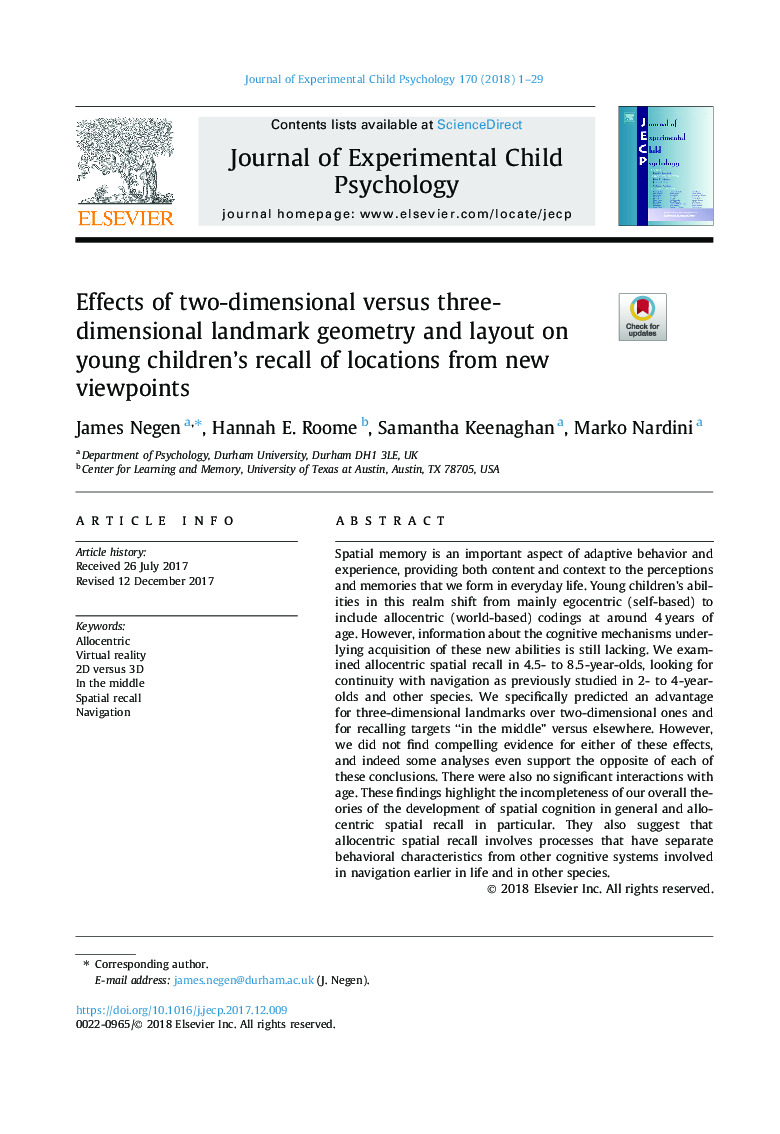| Article ID | Journal | Published Year | Pages | File Type |
|---|---|---|---|---|
| 7273982 | Journal of Experimental Child Psychology | 2018 | 29 Pages |
Abstract
Spatial memory is an important aspect of adaptive behavior and experience, providing both content and context to the perceptions and memories that we form in everyday life. Young children's abilities in this realm shift from mainly egocentric (self-based) to include allocentric (world-based) codings at around 4â¯years of age. However, information about the cognitive mechanisms underlying acquisition of these new abilities is still lacking. We examined allocentric spatial recall in 4.5- to 8.5-year-olds, looking for continuity with navigation as previously studied in 2- to 4-year-olds and other species. We specifically predicted an advantage for three-dimensional landmarks over two-dimensional ones and for recalling targets “in the middle” versus elsewhere. However, we did not find compelling evidence for either of these effects, and indeed some analyses even support the opposite of each of these conclusions. There were also no significant interactions with age. These findings highlight the incompleteness of our overall theories of the development of spatial cognition in general and allocentric spatial recall in particular. They also suggest that allocentric spatial recall involves processes that have separate behavioral characteristics from other cognitive systems involved in navigation earlier in life and in other species.
Keywords
Related Topics
Social Sciences and Humanities
Psychology
Developmental and Educational Psychology
Authors
James Negen, Hannah E. Roome, Samantha Keenaghan, Marko Nardini,
